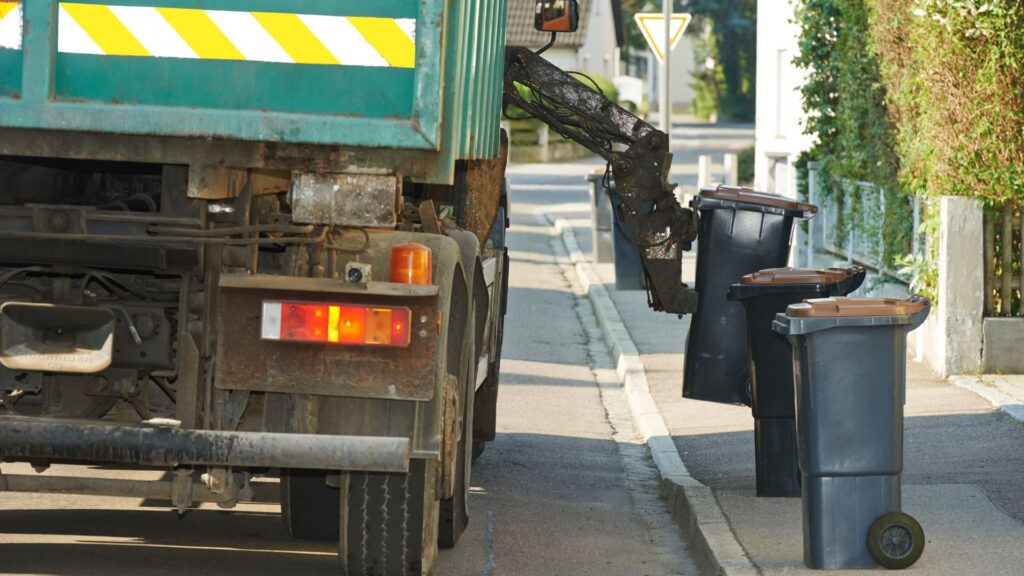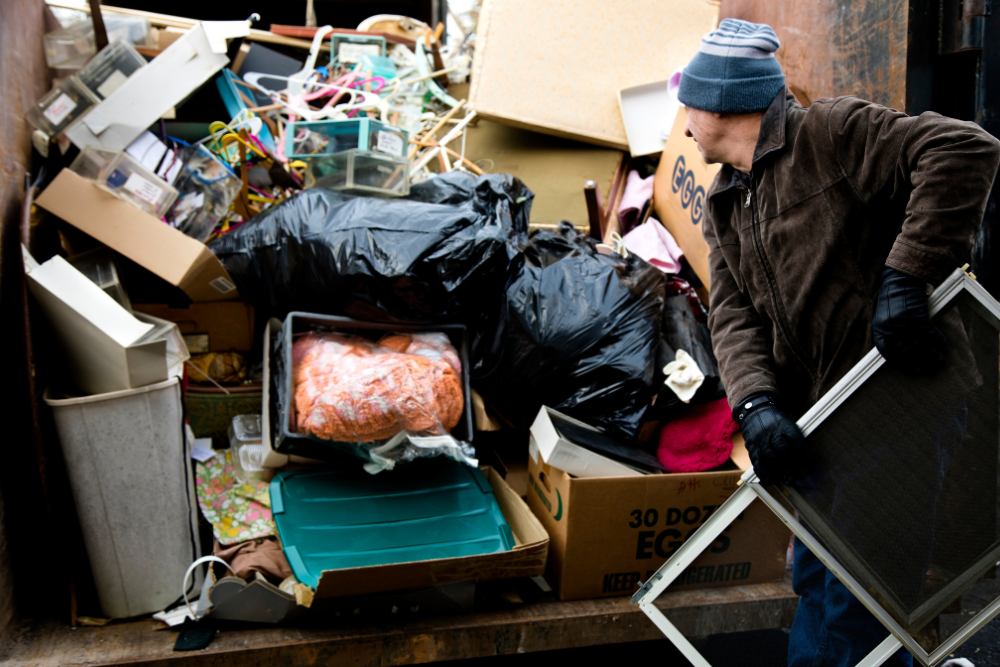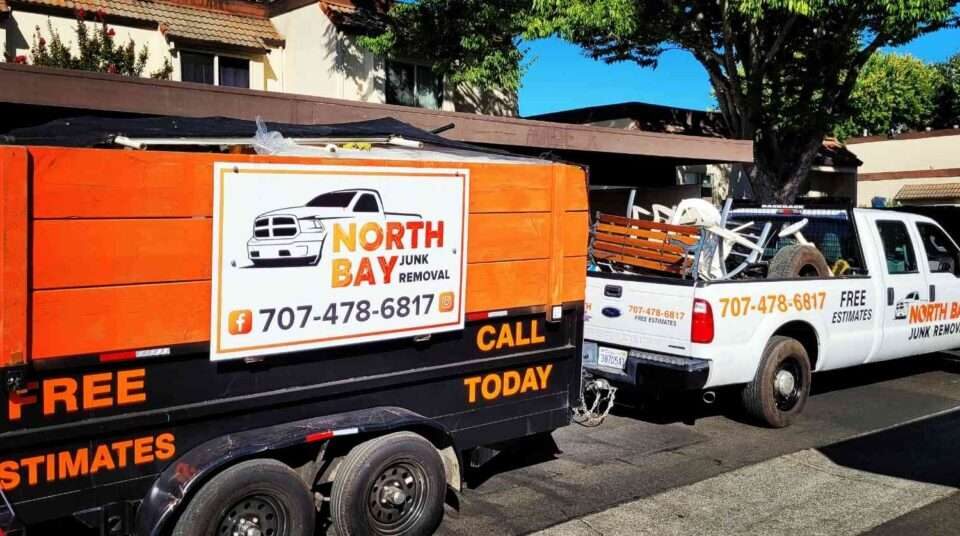
5 Eco-Friendly Junk Disposal Tips for Homeowners
September 16, 2025
Eco-Friendly Junk Removal How It Works
September 16, 2025Why You Should Choose E-Waste Disposal for Your Old Electronics
The rapid pace of technology has left most households and businesses with a growing pile of outdated electronics. From smartphones and laptops to printers and televisions, the question always arises—what should be done with these devices once they no longer serve their purpose? Tossing them into the trash may seem like the easiest option, but it is also the most harmful. E-waste contains valuable materials as well as toxic components, which makes responsible disposal critical. Choosing e-waste disposal is not only a practical solution but also a meaningful step toward protecting the planet and future generations.
By directing electronics through proper recycling channels, valuable metals are recovered, hazardous chemicals are neutralized, and environmental damage is avoided. Beyond the environmental angle, choosing responsible disposal is also a social and economic contribution. It reduces strain on landfills, supports resource conservation, and demonstrates commitment to sustainable living. Understanding the benefits of e-waste disposal reveals why it’s the smarter and safer choice for everyone.
Understanding The Hidden Dangers Of E-Waste
Old electronics are far more than harmless clutter. Inside every device lies a cocktail of materials, including lead, cadmium, mercury, and flame-retardant plastics. When dumped in landfills, these toxins can seep into soil and water supplies, threatening ecosystems and human health. E-waste left unmanaged becomes a silent pollutant, its hazardous elements capable of persisting for decades. What looks like an outdated laptop can actually become an environmental hazard if discarded improperly.
Choosing e-waste disposal ensures these dangerous substances are handled safely. Professional recycling facilities are equipped to dismantle electronics, separating hazardous elements from reusable materials. This process prevents toxic leakage while capturing components like copper, gold, and rare earth metals for reuse. By addressing the hidden dangers in e-waste, proper disposal offers peace of mind that your old electronics are not poisoning the environment. The unseen risk of pollution becomes an opportunity for resource recovery through responsible management.

The Value Of Recovering Precious Materials
Every electronic device is a small treasure chest of valuable resources. Gold, silver, copper, and platinum are commonly found in circuit boards, connectors, and wiring. Extracting these elements from the earth requires energy-intensive mining, which contributes to deforestation and carbon emissions. Yet, by recycling e-waste, these same materials can be reclaimed with far less environmental impact. The process of recovery transforms what many see as garbage into a vital source of raw materials.
This recycling approach strengthens the concept of a circular economy, where materials are kept in use instead of being discarded. Recovering precious metals reduces reliance on destructive mining practices while ensuring industries have the resources they need for manufacturing. Choosing e-waste disposal therefore helps conserve natural ecosystems while keeping costs lower for production. It shows that what seems like useless junk can, with the right system, become a valuable contributor to sustainable industry.
How E-Waste Recycling Protects Communities
Communities often face the direct consequences of improper electronic disposal. When devices filled with toxic materials end up in local dumps, the surrounding soil and water quickly become contaminated. This can affect food supplies, drinking water, and public health. Children and vulnerable populations are particularly at risk, as they may experience health problems linked to chemical exposure. Improper disposal is not just a personal choice—it is a community issue that has long-term consequences.
E-waste recycling offers an effective solution by preventing these hazards from entering neighborhoods. Instead of sitting in unsafe disposal sites, electronics are carefully processed to neutralize risks. The process reduces pollution while encouraging local recycling initiatives, creating cleaner and healthier living environments. Communities that prioritize e-waste recycling not only avoid toxic outcomes but also gain a sense of collective responsibility. Responsible disposal strengthens public health, reinforcing the importance of sustainable practices at both household and community levels.
Supporting Innovation Through Recycled Materials
Recycling old electronics is not only about reducing waste but also about fueling innovation. Modern industries rely heavily on rare and finite materials to create new products. By reclaiming metals and other components from e-waste, recycling provides manufacturers with a steady stream of essential resources. This reduces the need for mining operations that damage landscapes and ecosystems. Recycled materials become the foundation for new devices, allowing technology to progress without depleting the planet further.
Innovation also thrives when waste is transformed into opportunity. The recycling sector itself has become a hub for new technologies, developing safer and more efficient ways to extract materials. These advancements feed into broader industries, strengthening both environmental responsibility and economic growth. Choosing e-waste disposal is not only about avoiding harm but also about actively supporting the creation of new, sustainable products. It’s a reminder that yesterday’s electronics can fuel tomorrow’s breakthroughs.
Reducing Landfill Pressure With E-Waste Recycling
Landfills are reaching their limits, and electronics only make the problem worse. Bulky televisions, outdated printers, and old computer towers take up significant space, yet they offer no value once buried. Worse, their hazardous contents leak into the environment over time, turning landfills into hotspots of contamination. Traditional disposal methods simply shift the burden forward, leaving future generations to deal with the consequences of short-term convenience.
E-waste recycling diverts these items away from landfills, alleviating pressure on already strained waste systems. Instead of wasting space and creating hazards, electronics are broken down, recycled, or reused. This shift benefits not only the environment but also waste management operations, which can operate more efficiently when harmful materials are removed from the stream. By reducing landfill contributions, e-waste disposal demonstrates a proactive approach to managing the challenges of growing waste volumes in modern society.
The Role Of Businesses In Responsible E-Waste Disposal
Companies often generate large amounts of electronic waste through outdated office equipment, old servers, and broken devices. Without a sustainable plan, these items may end up stockpiled in storage rooms or disposed of unsafely. For businesses, choosing e-waste disposal is not just a matter of compliance but also a reflection of corporate responsibility. Clients, employees, and partners increasingly look to companies that align with eco-friendly values.
Responsible disposal also benefits businesses internally. Recycling old electronics can reduce disposal costs, free up space, and streamline operations. Many organizations also find that donating usable electronics to schools or nonprofits adds social value to their environmental responsibility. By prioritizing e-waste recycling, businesses demonstrate leadership in sustainability while supporting their own growth. The role of businesses in responsible disposal is clear: what they choose to do with their old electronics speaks volumes about their long-term vision.
Why Safe Disposal Protects Future Generations
The way society handles electronic waste today has direct implications for the future. Improper disposal creates long-term damage, with toxins polluting soil, air, and water for decades. Future generations would be forced to deal with poisoned environments and dwindling resources if e-waste continues to pile up. Every outdated computer or discarded cell phone has the potential to contribute to this growing problem.
Choosing e-waste disposal prevents these risks and safeguards the planet for those who come after us. Recycling ensures that valuable materials remain in circulation, while harmful elements are contained. This responsible approach creates a legacy of environmental care, proving that convenience does not have to come at the expense of sustainability. By making mindful choices now, society ensures cleaner air, healthier ecosystems, and greater resource availability for future generations. Safe disposal is therefore a direct investment in long-term well-being.
How Consumers Can Make A Difference
Individuals often underestimate the impact of their actions when it comes to waste. Yet, every old laptop, phone, or television that is responsibly recycled contributes to a larger shift in sustainability. Consumers who choose e-waste disposal help reduce landfill contributions, conserve resources, and prevent pollution. Each choice creates a ripple effect, inspiring others to adopt similar practices. Small changes at the household level accumulate into meaningful environmental benefits.
Consumers also have the power to support businesses and services that prioritize eco-friendly disposal. By choosing responsible junk removal providers, individuals encourage more companies to adopt sustainable practices. These choices influence market demand, pushing industries toward greener solutions. It becomes clear that every consumer plays a vital role in shaping the future of waste management. Through responsible action, ordinary people become part of an extraordinary solution that supports both the environment and community health.
Building A Culture Of Sustainability Through Disposal
E-waste disposal is not just a one-time action; it is part of building a broader culture of sustainability. When communities, businesses, and individuals commit to recycling electronics, they reinforce values of responsibility and care. This cultural shift moves society away from a throwaway mindset toward one that prioritizes long-term use and regeneration of resources. Sustainable habits grow stronger when they are practiced consistently.
The cultural impact also reaches into education and awareness. As more people understand the consequences of improper disposal, they are motivated to make better decisions. Schools, organizations, and local governments often lead initiatives that encourage collective responsibility. Over time, these efforts shape a community that sees waste not as garbage but as an opportunity. By normalizing responsible e-waste disposal, society builds a culture that aligns progress with sustainability, ensuring that growth never comes at the planet’s expense.
Conclusion
E-waste disposal is more than an alternative to tossing old electronics into the trash—it is an essential part of building a responsible and sustainable future. By preventing toxins from entering the environment, recovering valuable materials, and reducing landfill contributions, this practice protects both people and the planet. It benefits communities, supports innovation, and sets the stage for future generations to thrive in healthier environments. Whether on an individual or business level, making the choice to recycle electronics demonstrates foresight and care.
For professional junk removal services in Santa Rosa, CA, North Bay Junk Removal provides eco-friendly solutions that include responsible e-waste disposal. Their team ensures that electronics are handled properly, with a focus on recycling, reuse, and environmental safety. By choosing North Bay Junk Removal, clients can declutter responsibly while contributing to sustainability goals. To schedule a service, call 707-478-6817 today and discover how responsible junk removal supports a cleaner and greener tomorrow.




